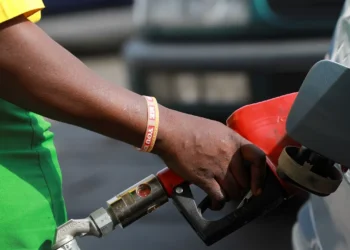The ongoing scarcity of certain essential commodities in Nigeria, including petroleum products and foreign currency, has sparked debates and speculations about the underlying causes. While scarcity is often attributed to factors such as production challenges or limited supply, some argue that the problem lies elsewhere.
One prevailing perspective is that the scarcity is not due to a lack of the commodities themselves but rather their diversion and hoarding for illicit gains. Take cement, for example. Despite its essential role in construction projects, it’s not that cement is inherently scarce; rather, there are allegations of diversion and hoarding for price gouging.
Similarly, the scarcity of the dollar, a crucial currency for Nigeria’s economy, is not necessarily due to its limited availability. Instead, reports suggest that the dollar is being bought up, diverted, and hoarded by individuals seeking to profit from currency fluctuations.
Instances of theft and embezzlement further highlight this issue. Cases where individuals, including high-ranking officials, are found to have stashed away significant sums of money in various locations underscore the misallocation of resources. For example, during the tenure of President Muhammadu Buhari, reports emerged of millions of dollars being discovered in unconventional hiding spots, raising questions about accountability and transparency in financial management.
Moreover, concerns extend beyond physical currency to include remittances from the Nigerian diaspora. Despite significant inflows of foreign currency, there are allegations of diversion and hijacking, leading to the funds not reaching their intended recipients in Nigeria.
While some argue that the scarcity of dollars is a genuine issue, others, like the author of the opinion piece, believe otherwise. They contend that the problem lies in the mismanagement and misallocation of resources rather than an actual shortage of currency. This sentiment is echoed in the hypothetical scenario presented, where a change in the US dollar prompts individuals to offload their hoarded currency, potentially flooding the market and driving down the exchange rate.
Overall, the debate surrounding the scarcity of essential commodities in Nigeria underscores broader concerns about transparency, accountability, and equitable distribution of resources. Addressing these underlying issues will be crucial in ensuring stability and prosperity for the nation.










